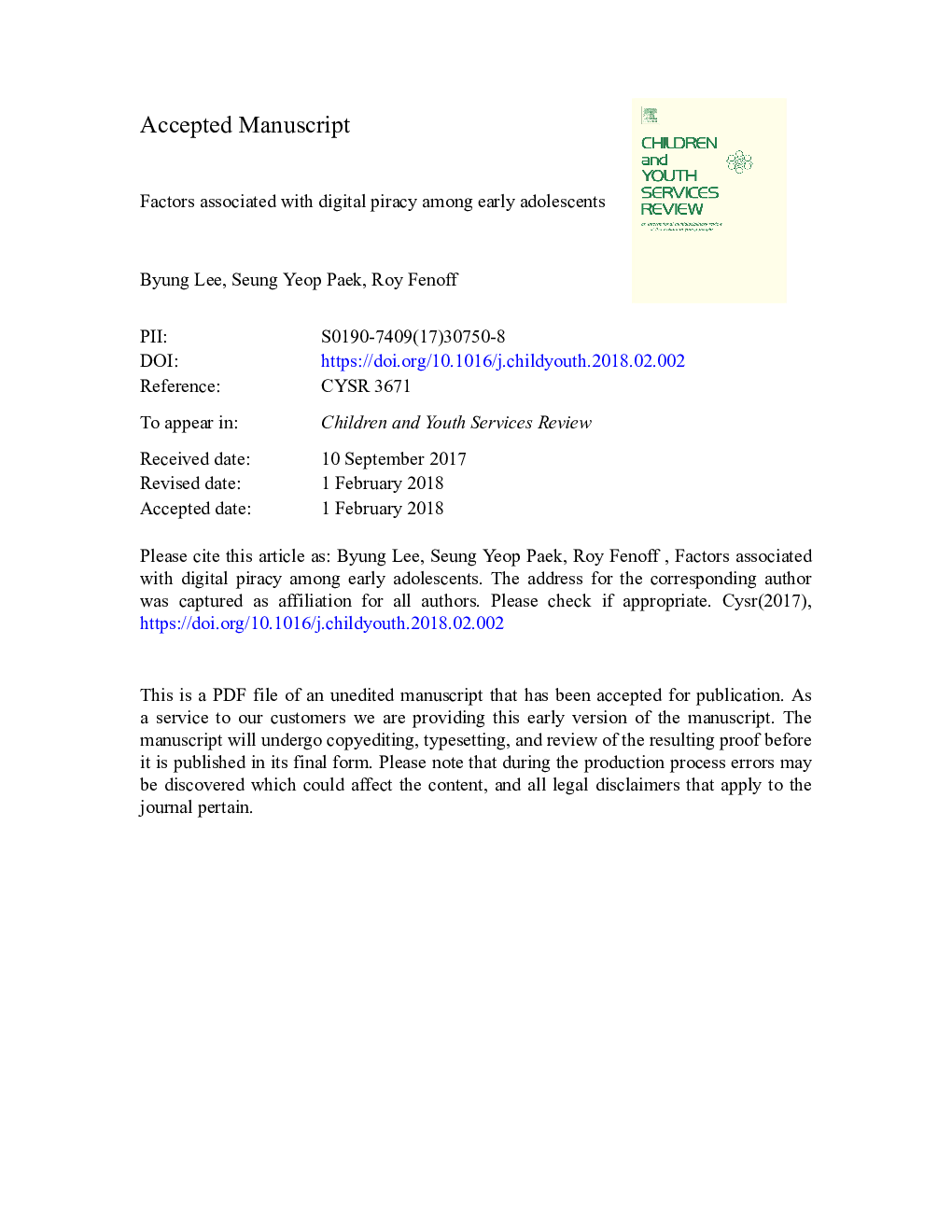| Article ID | Journal | Published Year | Pages | File Type |
|---|---|---|---|---|
| 6833423 | Children and Youth Services Review | 2018 | 35 Pages |
Abstract
With increasing capacity for storing and transmitting digital content via peer-to-peer networks, digital piracy remains to be a growing concern for various industries worldwide. Concurrently, young people have been at the forefront of adopting and using new technology to share or distribute information with one another. Given that the majority of existing studies have relied on college samples, it is valuable to explore the factors associated with digital piracy among adolescents in non-Western cultures. Using a South Korean sample and multivariate logistic regression, the current study found that association with deviant peers as well as attitudinal and perception indicators are linked with one's participation in digital piracy. These findings suggest that in addition to peer association, an individual's moral attitude toward and perceived legality of digital piracy play a role in the illegal downloading and unauthorized uploading of copyrighted media files among youth. Implications for research and policy are discussed.
Keywords
Related Topics
Health Sciences
Medicine and Dentistry
Perinatology, Pediatrics and Child Health
Authors
Byung Lee, Seung Yeop Paek, Roy Fenoff,
